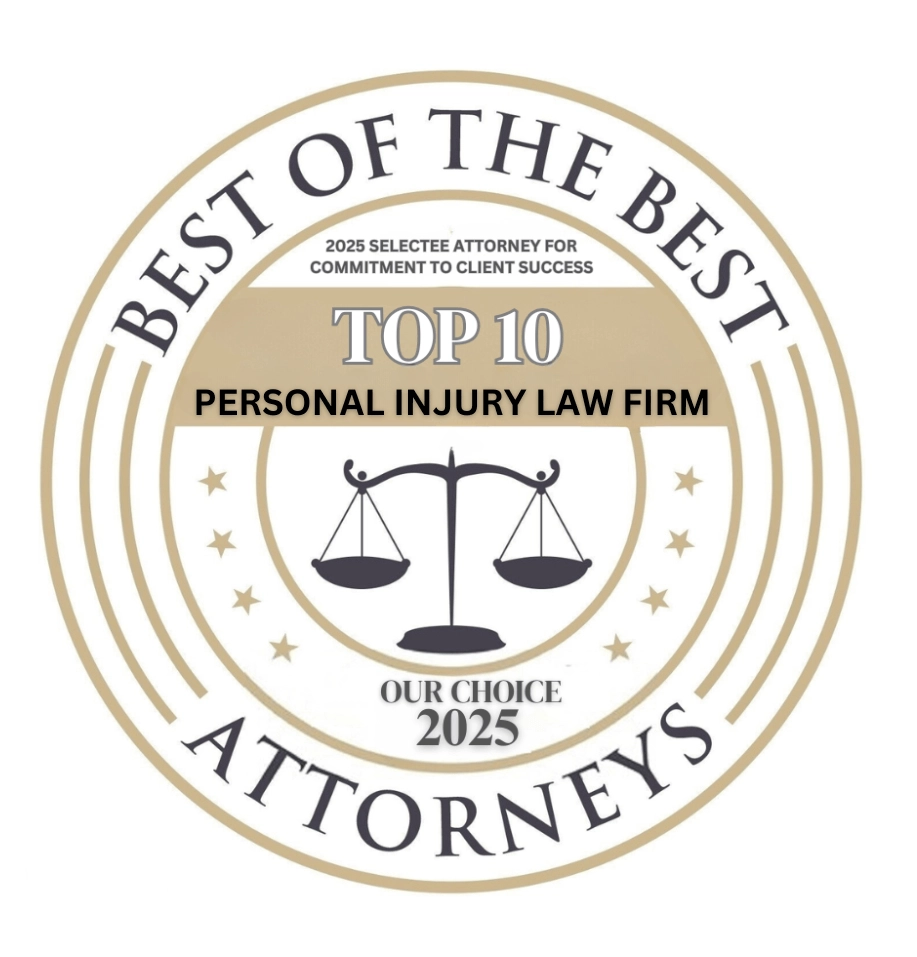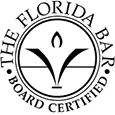Drinking and Driving Truck Drivers
Drunk drivers represent an ever-present danger on American roads. Their reckless, selfish actions destroy thousands of lives every year, inflicting physical, emotional, and financial pain on innocent victims and families.
More dangerous and reckless than a drunk driver behind the wheel of a car is a drunk driver behind the wheel of a large truck. The sheer size, weight, and destructive power of a truck increase the dangers associated with a collision. Truckers who drink and drive put even more lives at risk, with even more catastrophic consequences, than do drunk passenger car drivers. In this blog, we discuss the unforgivable tragedy of accidents caused by drunk truck drivers. If you or a loved one has already suffered at the hands of a drunk truck driver then speak to a truck accident attorney today to discuss your recovery options.
The Scope of the Problem

The Federal Motor Carrier Safety Administration (FMCSA) regulates the American trucking industry. In addition, the FMCSA publishes detailed data about crashes involving large trucks on U.S. roadways. In the past several years, America’s roadways have witnessed, on average, about 100,000 injury-causing crashes, and around 4,000 fatal crashes involving large trucks, per year. Commercial truck accidents can cause devastating consequences for all involved. They cause widespread destruction, catastrophic injuries, and death.
In the United States, alcohol-use commonly contributes to causing motor vehicle accidents. The Centers for Disease Control and Prevention report that more than one-quarter of all U.S. traffic fatalities, in any given year, involved impaired drivers. Despite long-running public awareness campaigns and criminal enforcement efforts, Americans continue to drink and drive, and, consequently, destroy lives.
Statistics related to drinking and driving are most disturbing. One piece of “good” news is that truckers are far less likely to cause an accident by driving drunk than passenger car drivers. In fact, just 3.6 percent of truck accident fatalities on U.S. roadways in 2017 involved an impaired truck driver. Just 2.5 percent of those drivers had a blood alcohol concentration (BAC) above the legal limit of 0.08 for passenger car drivers. In comparison, that same year, 23.9 percent of passenger car fatalities involved a driver who had been drinking. Almost all of the impaired drivers involved in fatal accidents had a BAC above the legal limit.
The relative rarity of drunk truck drivers may provide drivers with some comfort. However, not for those whose lives have been shattered by the 3.6 percent of truckers whose impairment caused a fatal crash.
Legal Consequences for Impaired Truck Drivers
In Washington, as in most other states, truck drivers face severe consequences if they have a drink and drive. For starters, when truck drivers have a BAC of 0.04, they are considered legally impaired. Truck drivers. Passenger car drivers are permitted to operate their motor vehicles with double the BAC as is permissible for truck drivers.
Drunk driving comes with well-known criminal penalties, which may include fines, probation, community service, and jail time. In addition, in Washington State, commercial drivers with a Driving Under the Influence (DUI) conviction face an immediate one year disqualification of their Commercial Drivers License. In other words, a truck driver convicted of drunk driving loses his ability to drive a truck for a year for his first offense. If a truck driver is convicted of a second DUI offense, they will completely lose their ability to legally operate a commercial vehicle.
The severity of these penalties may deter truck driver impairment, explaining the relatively low rate of incidents involving drunk truck driving. Unfortunately, although stiff penalties might reduce how many truckers drive after drinking, they do not eliminate the problem. Commercial truck drivers are human, and lapses in judgment can lead to poor decision-making.
Drunk Truck Driving Dangers
What happens when a trucker has a few drinks and decides to drive? To start, being a truck driver doesn’t make a person any less susceptible to the dangerous effects of alcohol. The effects of alcohol impairment include:
- Slowed reaction times;
- Impaired judgment and decision-making;
- Compromised motor control;
- Blurred or altered vision; and
- Lowered inhibitions against engaging in risky behavior.
Behind the wheel, for all drivers, the effects of alcohol impairment may result in:
- An increased distance required to stop;
- A failure to recognize and abide by road signage and other traffic control devices;
- Weaving, swerving, and running off the road;
- The inability to perceive other vehicles or pedestrians; and
- Speeding, dangerous passing, and other aggressive driving.
Common Causes of Drunk Truck Driver Accidents
Commercial truck and passenger car accidents have more or less the same causes. However, commercial truck collisions typically have more severe consequences. Common causes of drunk truck driving crashes include:
- Blind spot accidents. Even at their most alert, many truckers struggle to keep track of vehicles in and around their blind spots. Commercial trucks have “No Zones” that limit visibility extending 20 feet in front of the cab and 30 feet behind a trailer. And, one lane width to the left of the truck, and two lane widths to the right of the truck. Monitoring vehicles entering and exiting the “No Zones” requires extensive skill and concentration. A moment of inattention can lead to a truck driver’s unawareness of a nearby vehicle. Monitoring blind spots is a difficult task for sober truck drivers. You can imagine the task only becomes more difficult to perform after a few drinks.
- Head-on and run-off-road collisions. Truckers under the influence of alcohol have the same difficulty maintaining their traffic lane as do passenger car drivers. Veering to the left can point a truck into oncoming traffic resulting in a catastrophic head-on collision with another vehicle. Veering to the right can send the truck off the roadway and onto a road shoulder. The driver may lose control of the vehicle resulting in a rollover or collision with buildings, trees, or pedestrians.
- Jackknifes. Drunk truckers who catch themselves weaving may overcorrect by braking too hard or over-steering. Either of these actions can put a tractor trailer into a jackknife position. A truck jackknifes when the trailer swings to one side becoming perpendicular to the cab. A jackknifed tractor trailer may as well be a bulldozer traveling down a highway. The trailer portion of the truck often crosses multiple lanes of traffic, which may result in multiple collisions.
- Rollovers and rear end collisions. Truck drivers with alcohol in their system may misjudge speed and distance. On an exit ramp or sharp curve, a little too much speed may cause the truck to rollover. On a straight roadway, extra speed and slow reaction time may lead to a catastrophic rear end collision.
Any of the accidents above will predictably lead to fatalities, catastrophic injuries, and widespread property damage.
How to Spot a Drunk (or Drugged, or Fatigued) Truck Driver
Let’s pause here to recognize that drinking alcohol is not the only way to dangerously impair a truck driver. Washington State’s DUI laws also apply to drivers impaired by drugs or medications, illegal or prescribed. Additionally, research shows that driving while excessively fatigued, or “drowsy driving,” is just as dangerous as driving with a BAC over 0.08.
Sleep deprivation can have similar effects on your body as alcohol impairment. Fatigue is particularly problematic among truck drivers because they work long, irregular hours. Further, as a working population, truckers are predominantly older individuals with relatively poor health. Below we discuss signs that may indicate that a truck or passenger car driver is driving while impaired.
So, how do you spot a drunk (or drugged, or fatigued) trucker? Here are some tips:
- Look for well-known drunk driving behaviors. Anyone who has ever taken a Driver’s Ed course knows the basic warning signs of a drunk driver. Drunk drivers may be observed weaving, suddenly accelerating or decelerating, recklessly speeding, or carelessly passing. Observing these behaviors in a commercial truck may indicate the driver is impaired.
- Keep an eye out at rest stops. It is never safe for a trucker to consume alcohol while on the job. If you see a truck driver drinking at a rest stop, notify the authorities.
- Know the danger zones. You are more likely to encounter drunk, drugged, or fatigued truck drivers at night, on long, straight stretches of road. It is best to avoid driving at those times because you, like the truckers, run a higher risk of getting dangerously drowsy. If you have to drive late at night and early in the morning, exercise extra caution around trucks.
- Open trailer doors and unsecured loads. Drunk truck drivers are more likely to overlook basic safety precautions before hitting the road. A truck with a trailer door swinging open, or carrying cargo that has not been secured or tied down, may be an indication of driver impairment. Alert the authorities right away.
All drivers should always exercise caution around trucks. On their best days, truckers’ jobs can be extremely difficult. After using drugs or alcohol or getting inadequate sleep, the job becomes dangerous to perform.
After a Truck Accident With a Drunk Truck Driver
What should you do if you are the unfortunate victim of an accident involving a drunk truck driver? Here are some tips:
- Be safe. At the accident scene, you should try to render aid if you can. However, truck accident scenes can present a multitude of potential dangers. The possibility that the truck driver is impaired only makes the circumstances more dangerous. Make safe decisions that prioritize your and your passengers’ safety and wellbeing
- Alert authorities. If you call 911 after a truck accident, and you suspect the trucker has been drinking, inform the dispatcher. The dispatcher can relay the information to first responders so they may be better prepared upon arriving at the scene.
- See a doctor. Always, always, visit a doctor after getting into any kind of motor vehicle accident. Not only does seeing a doctor protect your health, it also generates medical records. Documentation of your injuries may be useful should you later decide to pursue legal action against the trucker, his employer, or others.
- Consult an attorney. Most law firms offer a free consultation for potential clients. A consultation allows victims to discuss their accidents and injuries with an attorney. Together, you and the attorney may determine the best way to proceed. The fact that a drinking and driving truck driver caused your accident likely means you have the right to seek compensation. Injured victims may be entitled to compensation from the truck driver himself, and also the trucker’s employer. Speaking with a lawyer with experience litigating truck accident matters is the best way to protect your rights to recover compensation.
Drunk truck driving, fortunately, is a relatively rare occurrence on Washington roads. However, you should always be cautious and attentive when driving in the proximity of commercial trucks. You never know what could cause an impairment that has deadly consequences.
If a commercial truck accident has devastated your life, contact an experienced truck accident attorney right away.
Boohoff Law
2200 6th Avenue, Suite 768
Seattle, WA 98121
(877) 999-9999
Free Consultation
We Are Here For You 24/7
Reviews
– Elissa M.
“Really pleased with Boohoff Law! Received immediate responses when I had any questions. Treated amazingly by all staff … made this process a true breeze!”
– Caitlyn M.
– Brandy K.
Related Posts
Collision Course: Identifying the Most Common Types of Motor Vehicle Accidents
Hit by an Uninsured Rideshare Driver? Your Questions Answered About Filing a Claim
How Can Dashcam or GoPro Footage Help My Motorcycle Accident Case?
Recovery is personal.
We’re here for you.
We’re close by. And if you can’t make it to us, we’ll meet you where you need us, at home or in the hospital.
You're better off with Boohoff.











The information on this website is for general information purposes only. Nothing on this site should be taken as legal advice for any individual case or situation. This information is not intended to create, and receipt or viewing does not constitute, an attorney-client relationship.
available 24/7
(877) 999-9999
